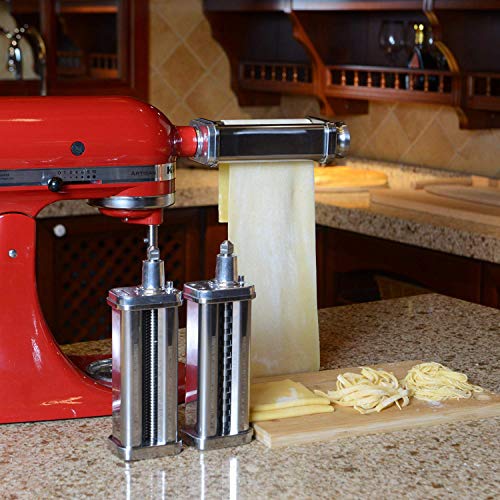How Many Events Can I Re-Use Fry Oil?
How Many Events Can I Reuse Fry Oil?
I wanted to ask you right now about reusing deep-fry oil. What variety of cases can you keep reusing it until it goes harmful? I be mindful you writing in your Wok Experience submit which you can reuse oil until it turns into darkish and significantly bubbly. However, a most well-liked Japanese TV current reported {{that a}} katsu made with outdated oil tasted superior to katsu made with new oil. I moreover be taught that many tempura places use a mix of outdated oil and new oil, which people declare offers a bit further style and color in comparison with using solely new oil.
—Despatched by surcredibility
At any time once I submit a recipe that features deep frying, I receive a string of emails or suggestions asking me what to do with all the leftover oil after you’ve got received fried one factor. It’s a good question—no particular person must throw out $10 value of dear peanut oil merely to make a single batch of french fries.
There’s some good news, then some harmful info, then further good news as soon as extra, in that order.
Important Eats / J. Kenji López-Alt
Good Info A: You don’t have to throw out used oil. Normally you could reuse it many, many cases!
Unhealthy Info: There isn’t any arduous and fast rule for what variety of time you could reuse that oil. Distrust any provide that gives a company reply on the amount cases you could reuse oil.
Good Info B: It’s simple to tell should you’ll wish to change your oil, and further importantly, there are some good steps you could take to increase the useful lifespan of your oil!
Let’s take a quick take a look at how deep-frying works sooner than we go on.
Deep Frying Fundamentals
Important Eats / J. Kenji López-Alt
Deep frying accomplishes two targets. At the beginning, it dehydrates meals. As shortly as a result of the meals hits the brand new oil, it begins to bubble. These bubbles are pockets of water which may be out of the blue vaporizing and leaping out of the meals, heading up by the oil, and escaping into the surroundings. The hotter you fry, the additional vigorously these bubbles leap out, and the faster your meals turns into crisp.
On the equivalent time, the Maillard response is occuring: proteins and carbohydrates are breaking down and recombining to provide the browned colors and flavors that we affiliate with well-fried meals.
Important Eats / J. Kenji López-Alt
With the intention to cease meals from becoming sturdy and stringy as they fry, most incessantly fried meals are first coated with a defending insulating layer of batter or breading. This offers us the most effective of every worlds: tender, steamed meals throughout the middle with a crisp, browned, bubbly layer of crispness on the skin.
By the best way, the individuals data that oil that’s too cool will set off meals to absorb further oil is bunk. In fact, because of oil tends to maneuver into areas which were beforehand occupied by water, the amount of oil a piece of fried meals absorbs is straight related to the amount of moisture that is pushed off, which in flip is straight related to the temperature you cook dinner dinner at, and the temperature to which you cook dinner dinner your meals to. The hotter you fry, the further oil meals will take up.
The notion of greasiness is what is going to improve with lower frying temperatures. Why? Because of soggy fried meals that comprise a mixture of oil and leftover water of their crust type comfy and greasy on the palate, regardless that the exact amount of oil they comprise is lower than that of accurately fried meals.
What About Oil Freshness?
Does oil freshness really affect its capability to fry, and if that is the case, how and why?
Oil’s freshness largely impacts its hydrophobic nature. Everybody is aware of that oil and water don’t want to mix, and that is doubtless one of many causes deep frying works so efficiently. You presumably can submerge a piece of meals in a pot of scorching oil and by no means rather a lot oil will get absorbed—at least, not until adequate moisture has been pushed out of the meals.
Important Eats / J. Kenji López-Alt
The additional oil breaks down, the a lot much less hydrophobic it turns into. At first, this can actually be a bonus. A lot much less hydrophobic molecules in your oil signifies that it could presumably come into nearer contact with meals, letting them fry solely a bit further successfully. That’s the place the data of those tempura cooks is offered in—together with a bit little bit of degraded, outdated fry oil to the model new batch will improve it.
Lastly, as this breakdown continues, your oil turns into a lot much less and fewer hydrophobic, and eventually it should start entering into your meals too shortly, inflicting it to indicate greasy and ruining its crispness.
At this stage, your oil should be modified. Some telltale indicators of outdated oil are foam on the best flooring, an incapability to attain frying temperatures with out smoking, and a darkish, dirty look and musty, fishy aroma.
The pace at which your oil will attain this stage will rely upon numerous parts. Let’s focus on these.
Points That Will Smash Your Oil
So what parts will affect the number of cases you could reuse your oil?
The Form of Frying Vessel
Sad actuality: frying at dwelling will wreck your oil faster than frying at a restaurant. Why? It has to do with the heating affiliation. In a loyal restaurant deep fryer, the heating parts are raised above the underside of the oil chamber. This creates a pocket of comparatively cool oil on the very bottom beneath the heating part. As small bits of particles fall off of the meals being fried, they sink to the underside of the chamber the place they rest beneath these heating parts.
With a home setup, then once more, you end up frying in a pot or a wok positioned over a burner. Particles of meals fall to the underside of the pan, coming in direct contact with a heat provide and burning, imparting their style to the oil and hastening its breakdown.
Sadly, there’s no precise choice to avoid this till you resolve to purchase a loyal electrical deep fryer in your dwelling kitchen. In case you fry a lot, this is not a nasty idea.
The Form of Coating
Important Eats / J. Kenji López-Alt
Major rule of thumb: The additional particulate matter you introduce to grease and the finer these particles, the faster your oil will break down. Battered meals like onion rings or bare meals like french fries will depart behind little or no detritus after they’re carried out frying. Breaded meals like hen cutlets will depart crumbs that fall off when the meals is added to the oil. And meals dredged in flour like these fried fish sandwiches will introduce a ton of particles.
So whereas oil by way of which you are cooking battered meals might last by a dozen or further batches, oil used for flour-dredged meals might break down after solely three to 4 makes use of.
The Form of Meals Being Fried
Important Eats / J. Kenji López-Alt
With battered and breaded meals, what’s inside doesn’t matter all that rather a lot as a result of it doesn’t come into direct contact with the oil. Nonetheless for meals which may be fried bare, the sort of meals can affect the final prime quality of the oil. Greens are more likely to fry the cleanest, imparting little or no to the oil. Alternatively, fatty meats like hen wings or bacon will render fat as they cook dinner dinner. This fat can then mix alongside along with your fryer oil, inflicting it to interrupt down a bit bit faster.
The Form of Oil and the Temperature
Important Eats / J. Kenji López-Alt
Completely totally different oils have completely totally different makeups in the case of their relative ranges of saturated and unsaturated fats and totally different solids. This may affect the best way through which they fry and the temperatures to which they’re typically heated. Normally, refined oils like most peanut, canola, vegetable, and corn will likely be heated to bigger temperatures than raw oils like extra-virgin olive oil or most sesame oil. It is not that you simply simply can’t fry in extra-virgin olive oil, it’s merely that it will break down far faster than a refined oil—if it could presumably even get scorching adequate to fry with out smoking throughout the first place.
The simplest oils for frying are sometimes these extreme in saturated fats, akin to peanut oil, vegetable shortening, or lard. They won’t solely have the longest lifespan, nonetheless they are going to moreover produce the crispest outcomes.
Storage
Oil can break down even with out the facility of a burner beneath it. Its largest enemies? Humidity, delicate, and heat. You all have at least one pal who outlets their oil correct above the vary, and even maybe sitting in a bottle in opposition to the backsplash. They’re no-good, dirty rotten oil-killers and I urge you to de-friend them immediately.
Oils—even these which had been used plenty of cases—should all be saved in tightly sealed containers in a cool, darkish place.
Simple strategies to Clear Oil
So you’ve got received cooked off that batch of fries, now you might want to retailer the oil for future use. How do you do this?
Start by way of the usage of a skimmer to skim off any floaters and large gadgets of particles that’s maybe lurking throughout the pot and discard them. Subsequent, pour the oil by a fine-mesh strainer proper into a transparent, dry pot. In case you have got been cooking flour-dredged meals, chances are high you will uncover a giant layer of dirty, flour-filled oil on the bottom of the pot. Stop pouring sooner than you pour these things by and discard it individually. Cowl the pot with the strained oil to cease mud from falling in, and let it cool totally. Lastly, use a funnel to pour the oil once more into its distinctive container (you in all probability did reserve it, correct?). Seal it tightly, and retailer the oil in a cool, dry place.
UPDATE: You in all probability have some gelatin available, you can also give this gelatin-clarification technique a shot. It actually works like a attraction and provides you crystal clear oil in a single day.
Three Strategies to Improve the Lifespan of Your Oil
Important Eats / J. Kenji López-Alt
- Use a Thermometer! Overheating oil is a quick and easy choice to get it to interrupt down into unusable form. On the equivalent time, under-heating oil sooner than together with meals to it might enhance the time period that meals has to sit there, which in flip will improve the amount of particulate matter that falls off of it, which as soon as extra can decrease oil lifespan.
- Work Clear! Maintain a fine-mesh strainer by your pot as you fry meals and use it to periodically clear up your oil by choosing up and discarding any bits of batter or breading which could have fallen off your meals.
- Persist with Battered Meals or Bare Greens. Battered meals will impart far fewer impurities to the oil than breaded or flour-dredged meals. Bare meals like french fries or sweet potato fries even a lot much less.
In spite of everything, even with all the following advice, there are a crazy number of variables available on the market that will affect your oil. Your biggest guess for determining when to toss the oil and when to reuse it is your private senses. Is it foamy? Does it scent rancid? Ditch it. In another case, merely stress, retailer, and in addition you are good to go for the following fry-up.




:max_bytes(150000):strip_icc()/__opt__aboutcom__coeus__resources__content_migration__serious_eats__seriouseats.com__2020__01__20200107-duck-confit-33-vicky-wasik-ec616512300e4f528ce2dab54a84908c.jpg?w=1200&resize=1200,0&ssl=1)
:max_bytes(150000):strip_icc()/__opt__aboutcom__coeus__resources__content_migration__serious_eats__seriouseats.com__2019__09__Food-Lab-Video-Shoot-VMW_9859-0156e698076b4c60997500b74ed807a2.jpg?w=1200&resize=1200,0&ssl=1)
:max_bytes(150000):strip_icc()/__opt__aboutcom__coeus__resources__content_migration__serious_eats__seriouseats.com__recipes__images__2015__12__20151202-prime-rib-red-wine-jus-step-by-step-kenji-28-d436b148a36b4aa29efc686b16765339.jpg?w=1200&resize=1200,0&ssl=1)